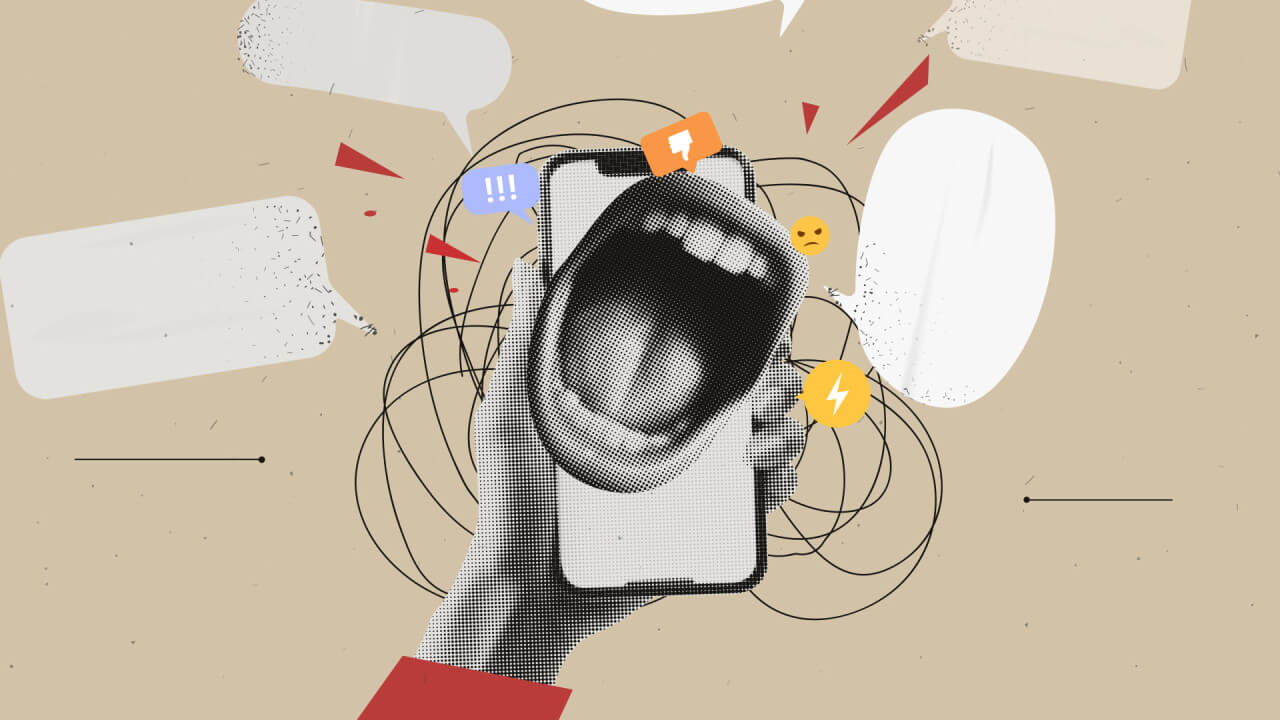

The ancient Greeks used ostracism to exile threats. Medieval Europe relied on public shaming before formal courts emerged. Even today, justice isn’t always about guilt, but about preserving order. Often, it’s enough to be someone the group no longer wants around. Justice reflects what a society is willing to tolerate, enforced through shared rules and punishment.
That process never disappeared; it evolved. Where justice once meant exile or shame, it now plays out online faster and louder. What once happened in town squares now happens on digital platforms. The internet has become a new kind of courtroom, where public opinion in comment sections often decides guilt or innocence.
This is a return to justice in its ancient form: decentralized. Instead of a judge or a village council, it’s the global crowd that decides what is acceptable or who is accountable, without institutional oversight.
The internet didn’t kill justice — it rewrote the rules
This system is harsh, but fast. Legal processes are slow, expensive, and seen as favoring those with resources. Social media, by contrast, acts instantly. When someone does something wrong, the public doesn’t wait. They expose, shame, and reject, sometimes before any legal process begins.
Cancel culture follows the same logic, driven by the public’s willingness to act when institutions won’t. That’s why it’s been effective against those in power: abusive executives and corrupt officials. When formal systems stall, public pressure takes over.
It’s also a way for the public to quickly declare that certain behavior is no longer acceptable. A joke that was acceptable a decade ago can end a career today. But this kind of justice has its risks: it’s unpredictable and sentiment-driven. It rarely distinguishes serious harm from minor missteps, and leaves little room for rehabilitation.
Once someone is “canceled,” there is no structured way to appeal. The paradox of decentralized justice is that while it removes power from institutions perceived to protect the privileged, it also strips away safeguards for the innocent.
Public outrage is hard to contain. The same platform that exposes real corruption can also amplify baseless accusations.
Blake Lively/Justin Baldoni case
Consider the Blake Lively/Justin Baldoni case. When Lively sued in December 2024, accusing Baldoni of harassment, public sentiment was swift. Many sided with her immediately, reflecting a post-MeToo commitment to always believing women’s accusations of abuse. This fits a familiar story: a powerful man abusing a female colleague.
By January 2025, new documents surfaced: texts, emails, and alleged inconsistencies in Lively’s claims. Online sleuths began piecing together details that cast doubt on her story. Just as quickly as Baldoni was condemned, the narrative flipped. Lively was now seen as the manipulator.
This volatility is a feature of decentralized justice. Public opinion can rally behind one version of events, then reverse entirely. It shows how fragile consensus can be when built on popularity rather than due process.
What didn’t change was the shared value beneath it all. The public doesn’t tolerate abuse of power.
Initially, that meant defending Lively as a presumed victim. But when evidence appeared to suggest otherwise, that same value redirected blame. The judgment wasn’t about gender. It was about punishing whoever was seen as misusing power, legitimate movements, and institutional presumptions.
Duterte and the ICC
Then, there’s the International Criminal Court (ICC) investigation into former President Rodrigo Duterte.
Duterte’s case follows a different pattern, not of consensus, but of lasting division. Unlike Lively/Baldoni, where the narrative flipped, Duterte exists in two competing realities.
Duterte’s legacy has always been split. Supporters saw a strong leader cracking down on crime, while critics saw an authoritarian behind state-sanctioned killings. These views haven’t shifted with time or evidence. They’ve only solidified.
Now, with the ICC investigating him for his drug war, the divide continues. To some, it’s overdue justice. To others, it’s a political attack, both local and foreign.
Decentralized justice doesn’t guarantee a single outcome. It means institutions no longer have centralized control over how justice is defined. Before, governments, courts, and media shaped dominant narratives. They decided facts, guilt, what became history, and what was forgotten.
The internet changed this. It made it possible for entirely separate truths to exist side by side. A leader can be both condemned and celebrated. History is no longer written by the victors, but in fragments, as modern justice narratives, shaped by values, algorithms, and influence scattered among individuals globally.
Traditional institutions can still issue rulings, but they can’t ensure those rulings are accepted. Traditional media no longer holds monopoly over public perception.
Influencers and private platforms, amplified by algorithms filtered through each individual’s own subconscious predispositions, can largely set the tone.
People can choose the version of justice that aligns with their values or the bubble they inhabit. Regardless of the ICC verdict, each version of justice will persist in different communities. Duterte’s legacy is split: half-abuser, half-victim.
Deeper impact of decentralized justice
But what does it say about a community when it cannot agree on justice? Without a shared moral compass, justice becomes subjective. What we punish or forgive reveals not just our values, but the kind of society we imagine ourselves part of.
This is the deeper impact of decentralized justice, not just on politics, but on personal lives. When no single verdict prevails, justice becomes less a legal outcome and more a continuous negotiation of power, identity, and belonging.
Each individual response becomes a declaration of values, a reflection of the community we choose — a portent of impermanent states, not bound by territories, but by an ever-shifting digital terrain.

Nikki Mendez is a corporate lawyer specializing in technology, including cloud computing, cybersecurity, privacy, and intelligent systems, guiding pivotal technology transactions and policy developments.